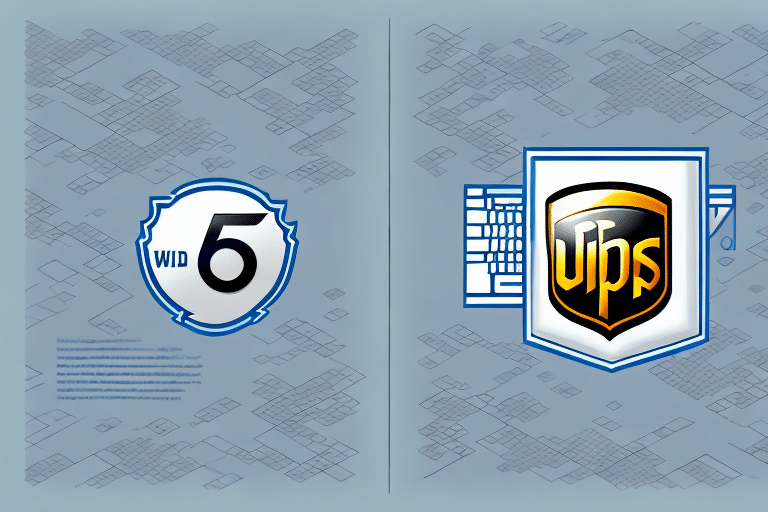How to Correct UPS Shipping Charges for Worldwide Express Shipments
If you frequently ship packages with UPS's Worldwide Express service, you may occasionally encounter discrepancies in the shipping charges that are calculated. These discrepancies can be frustrating and costly, and can also result in delayed shipments. However, with a little bit of understanding and effort, you can correct these charges to ensure that you are being charged the correct amount for your shipments.
Understanding UPS Shipping Charges for Worldwide Express Shipments
Before you can begin to correct any discrepancies in UPS shipping charges, it's important to first understand how these charges are calculated. UPS shipping charges are based on several factors, including:
- Weight and Dimensions: The actual weight of the package or the dimensional weight, whichever is greater, is a primary factor.
- Destination: International destinations may incur additional fees due to customs regulations and longer transit times.
- Service Level: Options like same-day, next-day, and two-day delivery have varying costs.
Worldwide Express shipments are typically charged based on the higher value between the actual weight and the dimensional weight of the package. For detailed calculations, refer to UPS's official rate calculator.
Additionally, UPS may apply additional charges for certain types of shipments, such as hazardous materials or oversized packages. These charges can vary depending on the specific circumstances of the shipment, so it's essential to check with UPS or consult their website for more information. UPS also offers various tools and resources to help you estimate shipping costs and choose the most cost-effective shipping options for your business needs.
Common Mistakes in Calculating UPS Shipping Charges for Worldwide Express Shipments
Understanding common pitfalls can help you avoid unnecessary costs:
- Inaccurate Measurements: Failing to accurately measure the dimensions of the package can lead to incorrect dimensional weight calculations. Remember, dimensional weight is calculated by multiplying the length, width, and height of the package and then dividing by a dimensional factor, which varies based on service type and destination.
- Ignoring Additional Fees: Overlooking fees such as fuel surcharges, address correction fees, or delivery area surcharges can significantly impact your shipping costs.
- Insufficient Insurance Coverage: While UPS provides basic insurance, it may not cover high-value items fully. Consider purchasing additional insurance to protect against loss or damage.
Factors That Affect UPS Shipping Charges for Worldwide Express Shipments
Several factors can influence the cost of your UPS Worldwide Express shipments:
- Customs Regulations: Each destination country has its own customs regulations, which can affect shipping times and costs.
- Type of Items: Certain items, especially hazardous materials, incur higher shipping fees.
- Additional Services: Services like insurance, signature confirmation, and special handling add to the overall cost.
Moreover, accurately measuring and weighing your packages is crucial. UPS employs a dimensional weight calculation to determine shipping costs, which considers both size and weight. Even light but bulky packages may incur higher charges. For more information, visit the UPS Shipping Tools page.
How to Calculate UPS Shipping Charges for Worldwide Express Shipments
Calculating shipping charges accurately ensures you pay only for what you need:
- Use the UPS Online Rate Tool: This tool helps you determine the most accurate shipping charges based on weight, dimensions, and destination. Access it here.
- Choose the Right Delivery Option: UPS offers various delivery speeds, including same-day, next-day, and two-day options. Select the one that best fits your timeline and budget.
- Contact UPS Customer Service: For personalized quotes and assistance, reach out to UPS customer service.
Tips for Reducing UPS Shipping Charges for Worldwide Express Shipments
Implementing cost-saving strategies can help manage your shipping budget effectively:
- Consolidate Shipments: Combine multiple packages into a single shipment to take advantage of bulk shipping rates.
- Opt for Slower Delivery When Possible: If time isn't a critical factor, choosing a slower delivery option can reduce costs.
- Negotiate Rates: Based on your shipping volume, you may be eligible for discounted rates. Contact UPS to discuss potential savings.
- Compare Shipping Carriers: Evaluate alternatives like USPS or FedEx to find the most cost-effective carrier for specific shipments. Learn more about comparing shipping carriers.
How to Negotiate Better UPS Shipping Rates for Worldwide Express Shipments
Negotiating favorable rates with UPS requires preparation and strategy:
- Gather Data: Compile information on your shipping frequency, package sizes, weights, and destinations.
- Propose a Customized Contract: Use your data to present a proposal that aligns with your shipping needs and volume.
- Avoid Peak Shipping Periods: Shipping during off-peak times can lead to better rates.
- Stay Informed: Keep up with UPS’s pricing changes and policies to leverage new opportunities for savings.
For more details on UPS shipping rates, visit UPS’s official resources or consult industry reports from sources like the UPS Global Services.
Advanced Strategies for Lowering UPS Shipping Costs for Worldwide Express Shipments
To achieve significant savings, consider these advanced strategies:
- Outsource Shipping and Logistics: Third-party providers can offer expertise and bulk rates that reduce costs.
- Improve Inventory Management: Efficient inventory practices minimize the need for expedited shipping.
- Utilize Alternative Shipping Methods: For international shipments, rail or sea freight can be more economical than air freight.
- Participate in Carbon Neutral Programs: UPS’s carbon neutral shipping program can help manage costs while supporting sustainability.
Regularly analyze your shipping data to identify further optimization opportunities. Tools like UPS Technology Solutions can assist in refining your shipping strategy for maximum efficiency and cost savings.
How to Dispute Incorrect UPS Shipping Charges for Worldwide Express Shipments
Addressing discrepancies promptly ensures accurate billing:
- Review Shipment Details: Compare your shipment confirmation and invoice to ensure all details match.
- Contact UPS Immediately: If discrepancies are found, reach out to UPS customer service to file a dispute and request corrections.
- Maintain Detailed Records: Keep track of tracking numbers, delivery dates, and shipping charges to support your dispute.
Be aware of UPS’s time limits for filing disputes, which vary by shipment type and origin country. For specific timelines, consult the UPS Dispute Policy.
The Role of Technology in Managing UPS Shipping Charges for Worldwide Express Shipments
Leveraging technology can streamline shipping processes and control costs:
- Shipping Management Software: Automate shipping processes, track shipments in real-time, and manage costs effectively.
- Real-Time Tracking: Monitor shipments to ensure timely delivery and address issues promptly.
- Data Analytics: Use analytics tools to gain insights into shipping patterns and identify cost-saving opportunities.
Explore tools like UPS Technology Services to enhance your shipping management capabilities.
Best Practices for Monitoring and Controlling UPS Shipping Costs for Worldwide Express Shipments
Implementing best practices ensures ongoing control over shipping expenses:
- Regularly Review Invoices: Check invoices and shipment confirmations for accuracy.
- Track Shipping Costs and Volume: Monitor your shipping expenses and volume trends to identify areas for improvement.
- Develop a Customized Shipping Plan: Work with UPS to create a shipping strategy that aligns with your business needs and budget.
Key Metrics to Track When Managing UPS Shipping Charges for Worldwide Express Shipments
Monitoring key performance indicators helps optimize shipping efficiency:
- Average Cost per Package: Calculate the mean shipping cost to identify cost-saving opportunities.
- On-Time Delivery Percentage: Track the reliability of delivery times to ensure customer satisfaction.
- Shipping Errors and Discrepancies: Monitor and address any errors to maintain accurate billing and service quality.
Utilize UPS’s reporting tools or third-party analytics platforms to track these metrics effectively.
Case Studies: Successful Strategies for Reducing UPS Shipping Costs for Worldwide Express Shipments
Learning from real-world examples can provide valuable insights:
- Company A: Implemented a consolidated shipping approach, reducing the number of packages and lowering overall costs by 15%.
- Company B: Negotiated bulk shipping rates with UPS based on high shipment volumes, achieving significant savings.
- Company C: Utilized advanced shipping software to optimize routes and delivery schedules, enhancing efficiency and reducing expenses.
These case studies demonstrate the effectiveness of strategic planning and technology integration in managing shipping costs.
Future Trends in the World of UPS Shipping Charges and Global Logistics
Staying informed about future developments ensures your shipping strategy remains competitive:
- Emerging Technologies: Innovations like artificial intelligence and machine learning are transforming logistics and cost management.
- Changing Regulations: Stay updated on international trade laws and customs regulations that impact shipping costs.
- Sustainability Initiatives: Increasing emphasis on eco-friendly shipping practices may influence cost structures and service offerings.
By anticipating and adapting to these trends, businesses can maintain a competitive edge in the global marketplace. For the latest updates, follow industry reports from sources like the Supply Chain Digital and Logistics Management.






















